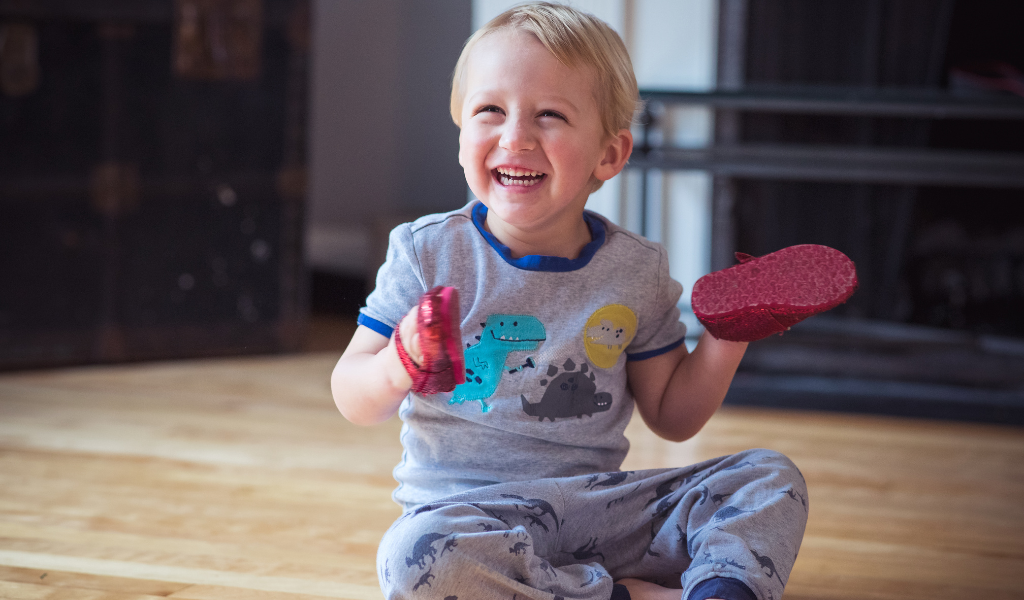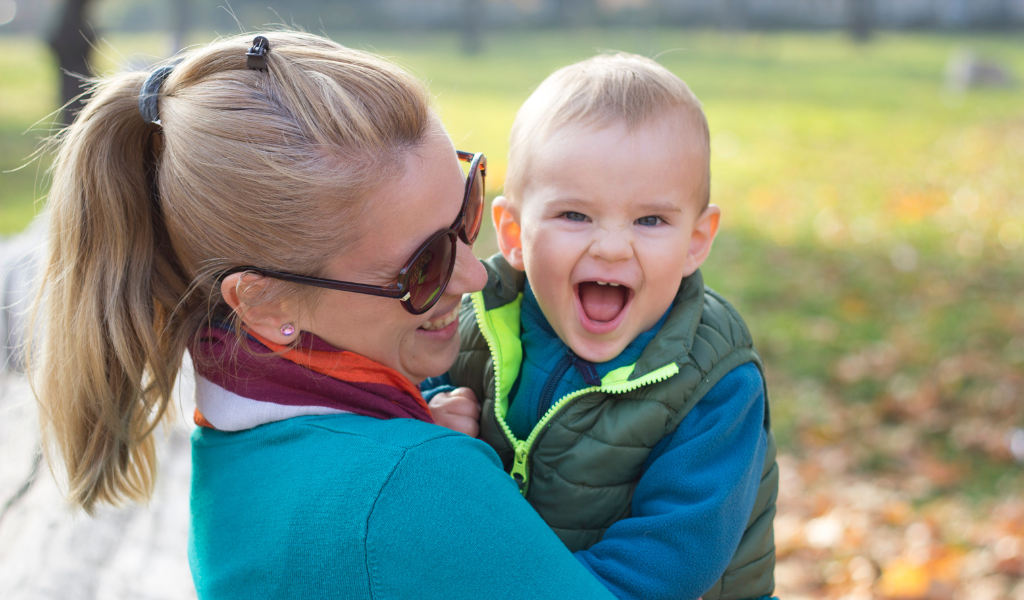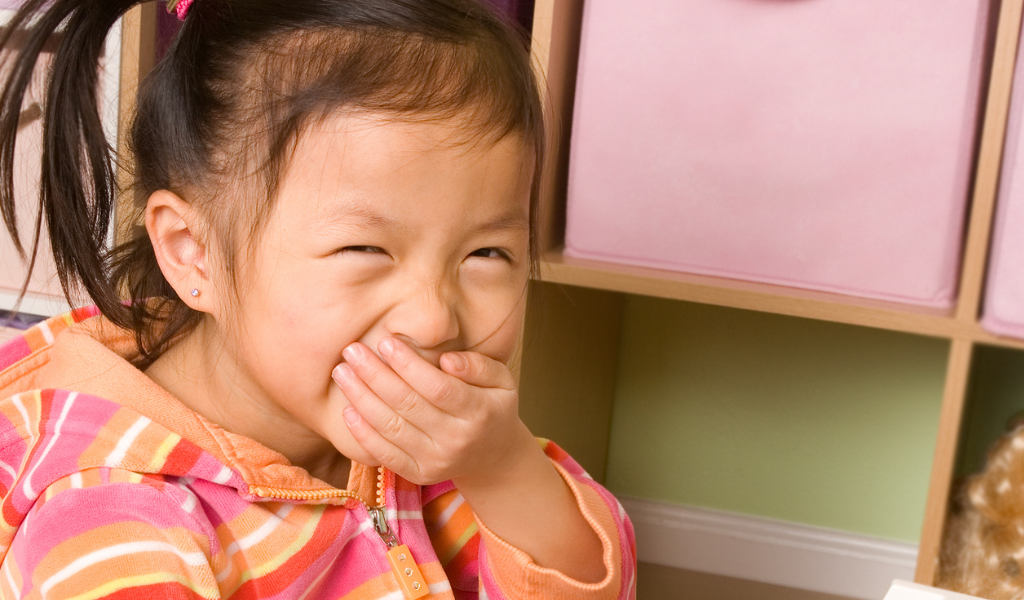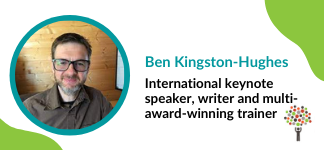In this blog, the inspirational Ben Kingston-Hughes explores the importance of joy and laughter and a sense of humour as a vital part of the early childhood developmental process.
There is one aspect of development that is never once mentioned in curriculum documents or on the EYFS but will be used by a majority of people far more than they ever use maths, geography or indeed any number of academic skills. I am of course talking about humour.
Now, I am not trying to downplay the importance of maths in society, after all it is an integral part of almost every advancement humans have ever made. However, the fact that humour is not recognised as a vital social function is a glaring omission in the holistic development of our children.

Humour is something that many of us will experience almost every day, whether it is a shared joke with a colleague or a funny video on YouTube. Sit coms, panel-shows and stand-up are so ingrained in modern life that it would be difficult to imagine a world without comedy and humour. Humour is an integral aspect of our social skills and a vital form of social interaction. Humour can diffuse a stressful situation and help us deal with tragedy. Humour brings joy to millions of people and is a fundamental part of what it means to be human in the first place.
My wife and I recently attended a close family member’s funeral. It was understandably a stressful and trying time for all of us. During the funeral the hymn chosen was “Morning has broken” and we made a classic error which was that we started singing too high. As the tune became increasingly higher our straining voices wandered so far from the actual tune that we might as well have been singing a completely different song. Just as we had begun to sound like particularly traumatised mice (on helium) we looked at each other and laughed.
Now I know laughing at a funeral is not an ideal situation but it certainly helped us through a difficult day.
Clearly then, a sense of humour is a vital developmental process. In our duty to prepare our children for adulthood the concept of humour would seem to be extremely important and something that should be embedded into good practice. And yet often humour seems to be absent.
This seems to be a rather large omission. I would argue that we are missing something really important, and we need to address this if we are going to give our children the joyful experience so essential for their life-long well-being.

Just like any developmental process, humour has to start somewhere. This means that for our youngest children, who are just starting this process, humour can be, well let’s just say, very basic. Being realistic we are not going to get complex wordplay from children who are still developing their vocabulary. We are not going to get insightful observational comedy from children whose life experiences have been limited, and we are certainly unlikely to get biting political satire from a 3-year-old.
Question – What is the Prime Minister’s economic policy?
Answer – Bogey!
(Note – This is actually true.)
So, you begin to see the problem. Children’s early sense of humour tends to consist of poo, farts and bogeys. Exactly the concepts that some adults will find rude or undesirable. I have had parents complain when I read the wonderful book, “The Dinosaur that Pooped a Planet.” because they considered it inappropriate. There is even a bizarre review of this book on Amazon which says, “Do not buy this book, it is about poo.”
The trouble is that if we restrict these early explorations of humour we are potentially impacting on the child’s progression into more advanced humour. Also, if we’re being honest, some of you giggled at the word “poo” and you are adults. I think therefore that adults can be overly strict with children’s humour. We need to recognise its limitations and celebrate children’s humour in all its forms. Far from being inappropriate, this is the start of something very special.
Another thing we do if we restrict humour is to restrict its outcome, laughter. Laughter is an instantly recognisable outpouring of joy and is hugely beneficial. Every bit of advice in terms of adult mental health says we need to laugh more, not less. Its benefit to children though is incalculable.

A recent study shows that social laughter, shared with other humans, increases the amount of opioids in our brain. Opioids are chemicals with a similar effect to morphine! This means that we get high on shared laughter.
Other studies show increased endorphin levels in the brain when we laugh. Endorphins are essential feel-good chemicals that are intrinsically important for emotional well-being and mental health. This means laughter is vitally important for our children and a key component of their well-being.
There are even studies that show laughter can help us cope with pain! This means the more we laugh, the more physically resilient we become, with one study showing that we are able to cope with 15% more pain if we have laughed before experiencing pain.
This is hugely significant for childcare settings because if we can make our children laugh, when they do inevitably fall over, they are now more likely to shrug off the pain and carry on playing rather than immediately needing an adult to help them. This could make children fundamentally more resilient and better able to cope with life! Laughter is better than any cold compress!
All of this means that if your children’s setting is a place full of laughter your children will flood with all of the positive biochemicals associated with joy and even their anticipation of arriving at the setting will lower their stress levels. They will then feel better, learn better and even cope with pain better. This will also do the same for the adults!

We need to foster a culture of laughter in our practice. Rather than dismissing this simple human reaction as an optional extra to childhood we need to acknowledge just how vital a childhood full of laughter can be. If adults are laughing, then the children are more likely to laugh too. If adults are not merely acknowledging the child’s sense of humour but actively encouraging and joining in with humour, then the child feels important and worthwhile but is also more likely to laugh.
Above all let’s start to recognise just how important humour is for our entire society and what a precious gift it is if we can support our children through this wonderful developmental process.
When planning our experiences for children when was the last time we planned something specifically because it was funny or humorous? Make sure then that this glaring omission is recognised and becomes part of your daily routine for children. Planning should involve humour built in and plenty of opportunities for incongruity and laughter. Support your children to develop humour by acknowledging and validating the humour they have and introducing them to worlds of possibility through new funny experiences. And let’s stop making children feel rubbish because they find poo funny, because after all it is funny!
This is an excerpt from “Why Children need Joy – the fundamental truth about childhood.” written by Ben Kingston-Hughes which will published Christmas 2023. Note published content may vary due to the editing process. Ben’s previous book “A Very Unusual Journey into Play.” is available from bookstores now. For more information about Ben’s training and work with children go to www.inspiredchildren.org.uk

Ben Kingston-Hughes is a writer, award-winning trainer and managing Director of Inspired Children, working with vulnerable children across the UK.